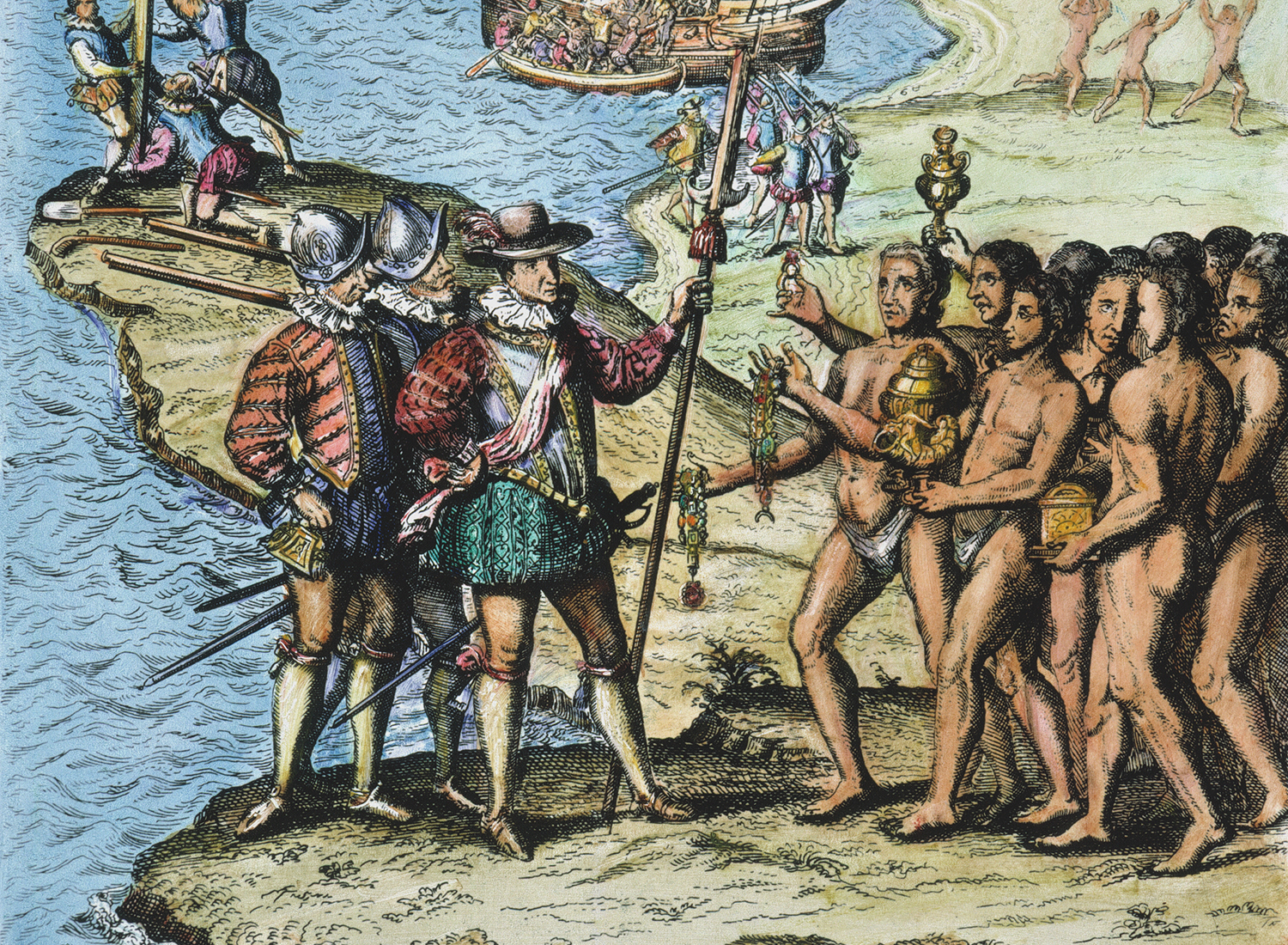A MATTER OF PERSPECTIVE

It is all a matter of perspective.
To some, Christopher Columbus is the heroic explorer who discovered the New World. To others, he is the man who “played a pivotal role in the worst genocide humankind has ever known,” as was stated by Kshama Sawant, a city council member in Seattle, where this week it was decided that Columbus Day should double up as Indigenous Peoples’ Day.
Sawant’s stand was vehemently opposed by Lisa Marchese, a lawyer affiliated with the curiously named Order Sons of Italy in America, as well as the Italian-American Chamber of Commerce of the Pacific Northwest.
Columbus’ Italian origins – he was born in Genoa – has motivated Americans of Italian origin to oppose Native Americans who advocate for Indigenous Peoples’ Day to replace Columbus Day so that they can celebrate the culture that disintegrated as a result of the European invasion.
“Italian Americans are deeply offended,” Marchese said.
The most fascinating aspect of this storm in a teacup is that neither Columbus Day nor Indigenous Peoples’ Day are recognized public holidays in Washington State. And yet people were willing to spend time and expend energy, and even trade insults, to ensure that their side was victorious in a fight where the winners have won nothing, and the losers are no worse off than before the fight began.
The saga of modern-day Native Americans fighting the descendants of Italian immigrants over the legacy of a fifteenth century adventurer who accidentally landed in the Bahamas in 1492, and who may or may not have precipitated the decline of the indigenous culture of the Americas, brought to mind the famous pasuk at the beginning of Kohelet (Eccl. 1:2): הֲבֵל הֲבָלִים אָמַר קֹהֶלֶת הֲבֵל הֲבָלִים הַכֹל הָבֶל – “Vanity of vanities, said Kohelet; vanity of vanities, all is vanity.”
This verse, written millennia ago, perfectly summarizes the human condition. The incredible efforts expended by human beings over matters that are for all intents and purposes pointless, simply defies comprehension, but – as Kohelet goes on to point out – “there is nothing new under the sun.”
Human beings seem compelled to campaign and battle over issues that ultimately achieve very little for anyone, while the really important stuff is often ignored or marginalized.
Kohelet is read on Sukkot or Shmini Atzeret. It seems an odd choice of scripture to be associated with a festival we proclaim as זְמַן שִֹמְחָתֵנוּ – ‘the time of our joy’. It is, on the face of it, a deeply pessimistic and downbeat tract, consisting of a narrative that catalogues human folly and the fragility of human existence.
How is this an appropriate theme to be read formally during the one Jewish festival when we are expected to be blissfully happy and cheerful?
It might be argued that if ever there was a spirit dampener, Kohelet is it. The author seems intent on pressing home the point that nothing is worth doing, and whatever you have ever done is really an utter waste of time. This hardly chimes with the spirit of joy.
In fact, Sukkot is probably the most appropriate time to read Kohelet. Hot on the heels of Rosh Hashana and Yom Kippur, Sukkot is the great equalizer. Rich and poor are forced to leave their homes and subject themselves to relative discomfort in a temporary leaf covered booth for seven days.
Even the most sophisticated sukkah is open to the elements, and all sukkah occupants will be subjected to wind, or heat, or rain, as the festival unfolds.
The idea behind the sukkah is that we should take the lessons of Yamim Nora’im and put them into practice. How could we better demonstrate that the lessons we professed to learn during fervent prayers in the synagogue on Rosh Hashana and Yom Kippur – lessons of humility, and commitment to God at all costs – have truly been absorbed and put into practice?
Consequently, we shun the physical comforts and familiar routines of our homes and displace ourselves into a temporary space that is less comfortable and less appealing.
What is most remarkable about this annual adventure is that if it is done in the correct spirit, it actually works. If our prayers were heartfelt, and our resolutions genuine, we will embrace the sukkah as the perfect vehicle by which to show that we were not merely paying lip service on Rosh Hashana and Yom Kippur, but rather we were intent on living up to the ideals embodied by those awesome days.
Nothing is more liberating than knowing that you do not really need very much in order to be happy. The lower you set the bar, the easier it is to achieve bliss.
People who need their creature comforts, and who collapse as soon as their comfort zone is breached, will remain chronically unhappy. People who can forgo the convenience of their homes and enjoy a 7-day sukkot experience are the ones who are most likely to be happy.
In which case Kohelet is the perfect partner to sukkot. It urges its readers to understand the futility of material pursuit, and the superficiality of human wisdom, so that in as much as each and every one of us is lucky enough to have material comfort and intellectual achievement, we will rejoice with what we have, despite its limitations, in the knowledge that everything we have is truly a blessing.
Facing up to the truth about our limitations is a recipe for happiness, not a route to depression. That is the message of the sukkah, and that is the message of Kohelet. It is certainly not the message of Indigenous Peoples’ Day.
Image: Christopher Columbus landing on the island of Hispaniola, etching, 1728. (Library of Congress)



